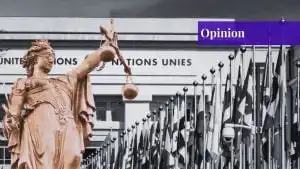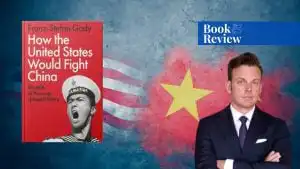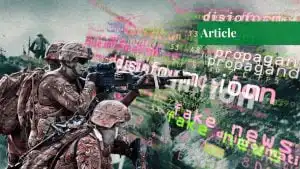The phrase “soft power” was first introduced by Joseph Nye in 1990 as a country’s ability to influence others without using force—to co-opt rather than coerce. But there is no universal definition of soft power. Some regard it as the use of economic and cultural influence, while others define it as power-shaping preferences through appeal and attraction. It is also seen as the employment of non-coercive means to influence the behavior and interests of others.
The concept of soft power emerged when the US was reflecting on its global influence in the post-Cold War era, questioning how it could maintain its global leadership without relying solely on economic and military might. Nye argued that in addition to traditional hard power, countries could influence others through attraction and persuasion. Traditionally, international relations theory emphasized power in terms of military might and economic strength. Nye’s concept challenged this narrow view, suggesting a broader understanding of power.
Soft Power as a Derivative of Hard Power
Nye expanded on his initial concept, detailing how soft power can be used effectively in foreign policy. He emphasized culture, political values, and foreign policies as key components. He argued that power cannot be rested on military and economic muscle alone. For a state to be more dominant and to achieve its goals and national interests, soft power is as important as hard power. Many other scholars also promoted this idea and considered the form to be different from the latter. It can be argued that soft power is not a separate entity, but rather a derivative of hard power.
Without military and economic strength, there is no soft power. To promote it, you must have hard power. Persuasion alone cannot work without solid backing. Similarly, the hard power of one state can convince the other to foster soft power due to fear of mutual destruction in case of war or conflict.
Soft power needs hard power for exertion. If it was indeed solely based on cultural dominance, political values, and good image, then great civilizations of the past would have never disappeared. We would never have encountered the extinction of the ancient Egyptian Civilization, the ancient Greek Civilization, the Roman Empire, Chinese Confucianism, the Inca Empire, the Aztec Empire, or the Ottoman Empire. This is not to say that only if there are military and economic forces, there would be soft power. Rather, the point to define is that hard power can exist without soft power but for the latter to develop, hard power is required.
Thus, soft power is indirectly a manifestation of hard power. It can make significant changes when it comes to the state and can operate effectively in fostering only its national interests, but for authoritative control, which is important for functioning in the arena of global politics, only hard power works.
The main drivers of international politics are the states that are militarily, economically, geopolitically, and strategically strong enough to employ coercive diplomacy, maintain a balance of power, and shape the world order. As argued above, soft power depends on hard power, so it can be claimed that the former does not influence international politics much because, in one way or another, it is a reflection of hard power, which is what determines the dimensions and dynamics of international politics.
American Use of Soft Power
During the Cuban Missile Crisis of 1962, the US and Soviet Union decided to resolve the conflict through diplomacy (soft influence), but it was the hard power—militancy, and nuclear capabilities of both countries—that motivated them to negotiate, due to the fear of mutually assured destruction.
After Trump first came into power, the soft power of America declined. Trump’s “America First” stance, withdrawal from several key international agreements—including the Paris Climate Agreement, the Trans-Pacific Partnership (TTP), and the Iranian Nuclear Deal, restrictive immigration policies, reduction in refugee admission, imposition of tariffs, and more contributed to deconstructing the soft power of America. Despite these, the US continued to serve as a great power primarily because of its military might and economic firepower. The US uses its economic power to shape global trade politics, which opens the market for American goods, services, and cultural products. NATO, a strong military alliance, showcases the United States’ commitment to collective security, reinforcing its leadership role. The US military investment in technology and innovation strengthens its hard power, helping it mold the world according to its national interests.
The US has increased its military presence in the Indo-Pacific region to counter China’s expansionism. The South China Sea conflict could be the origin of major changes in the upcoming decades.
How Does China Use Soft Power?
China uses persuasion rather than coercion in its relations with the Philippines since the latter is located on international trade routes. China is strong enough to use coercive power but it knows well that it may find the US behind the Philippines in case of a war. Similarly, the US support in strengthening Taiwan’s defense by providing tools of hard power (i.e. military and economic assistance, arms, missiles system, fighter jets, etc) limits China’s ability to alter the status quo across the Taiwan Strait unilaterally.
China has actively developed its soft power. It has made significant investments in cultural diplomacy through the establishment of Confucius Institutes worldwide. There are over 500 Confucius Institutes in more than 150 countries.
The Belt and Road Initiative has also significantly boosted its soft power. China has invested in global media as well, launching international news channels like CGTN and expanding the reach of the state-run news agency Xinhua. However, China’s soft power efforts have met with mixed reactions. Critics argue that China’s soft power is often accompanied by political strings attached. There are global concerns about the debt sustainability of BRI projects. China’s domestic human rights record, particularly regarding Xinjiang, Hong Kong, and Tibet, has damaged its soft image.
A survey conducted by the Pew Research Center in 24 countries in 2023 demonstrated that the US has more positive views than China, especially in high-income countries. This means that the US comparatively has more soft power than China but this does not make China less influential than it when it comes to international politics. Many developing nations in Asia and Africa view Chinese investment and aid positively but it is a fact to ponder that BRI, CPEC, and Confucius Institutes, are all founded on grounds of economic power; it is thus the hard power of China that fosters its soft power and indirectly brings China a positive global response.
China’s military threats around Taiwan are designed to deter its independence and discourage other countries, especially the United States from providing full-scale assistance to Taiwan. It is the hard power of the US and China that deters them from going for full-scale actions. Similarly, the hard power of China allows it to exert pressure on countries and organizations to keep them from condemning its policies over Xinjiang and Hong Kong. Countries heavily indebted to China may find it difficult to oppose Chinese interests in international forums, thus limiting their actions on issues where they might otherwise take a different stance.
According to the Soft Power 30 Index, China ranked 27th and Russia 30th but globally they rank amongst the great powers and operating forces of international politics. While Sweden, Finland, Ireland, Poland, Singapore, and Austria rank higher in the soft power index these are not great powers.
Why is Soft Power Ineffective for India?
India, an emerging superpower, still lacks effective soft power. Its exclusion from the Soft Power 30 Index is evident that India does not yet benefit as much from international awareness, positive associations, or investments in cultural diplomacy as many others. It has a widespread reputation for corruption, lawlessness, poverty, and low living standards. India has many UNESCO World Heritage sites but spends poorly on tourism and education on a per capita basis. India’s ranking in the World Press Freedom Index has been declining, with concerns over increased censorship and harassment of journalists. The abrogation of Article 370 in August 2019 led to widespread criticism and concern over human rights violations. The Citizenship Amendment Act (CAA) sparked protests and violence, particularly affecting the Muslim community.
Traditionally, India’s foreign policy has placed more emphasis on military and economic power than soft power. It may be an industrial and technological hub but it still lacks admiration from most global powers.
But India is operating at the same level in international politics as America, China, and other great powers, primarily because of its hard power.
In conclusion, it can be emphasized that only those countries with hard power have soft power. The latter cannot exist without the former. For a state to have a stronger voice in international relations and global politics, hard power is more important and influential.
If you want to submit your articles and/or research papers, please check the Submissions page.
The views and opinions expressed in this article/paper are the author’s own and do not necessarily reflect the editorial position of Paradigm Shift.
Eman Fatima is currently pursuing her Bachelor's degree in International Relations from Government College University Lahore. She has a keen interest in understanding the complexities of global politics and the dynamics that shape international interactions.





